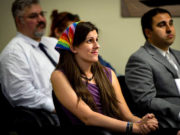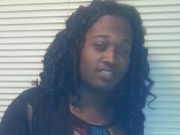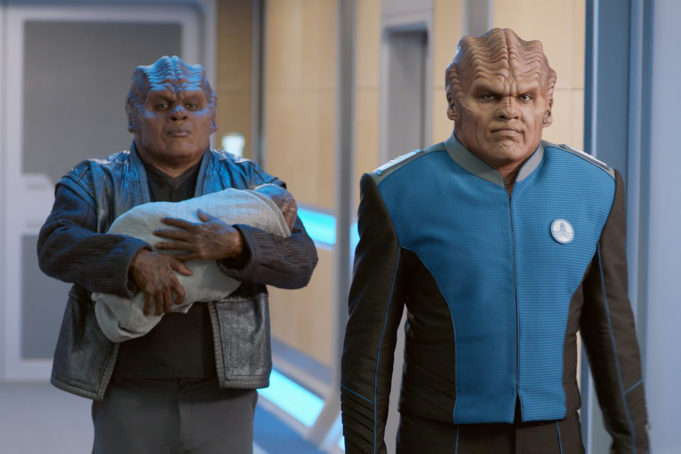ATTENTION: THERE WILL BE DISCUSSION ABOUT DETAILS REGARDING THIS EPISODE. YOU ARE DULY INFORMED THAT THERE ARE SPOILERS AHEAD.
While the new creation from Seth MacFarlane (the mastermind behind Family Guy, American Dad, and the Ted movies) “The Orville” is just on its third episode, they’ve already touched on a few social issues. The third episode (01×03 – About A Girl) brings to attention gender issues within the first five minutes, when two of the guys from an all-male species (the Moclan) hatch an egg together and their newborn winds up being a female. We find out that the species will surgically alter any female children into males.
When Bortus, the child’s father, asks the doctor to perform the “sex change” procedure he is immediately declined and declared to be barbaric and out of line. When he seeks the permission from the captain, Ed Mercer (Seth MacFarlane), a heated debate ensues where Bortus compares the genetic anomaly of having a cleft palate at birth as being a similar issue to genetic anomaly. During general conversation on the deck of the Orville, everyone seems to understand the overall weight of the issue and favor not allowing the procedure to take place.
“Interestingly, the show tries explore the issue of forcing a child (or person) to conform to a society’s standards of what is acceptable.”
Interestingly, the show tries explore the issue of forcing a child (or person) to conform to a society’s standards of what is acceptable. This is made loud and clear as Bortus declares that he is “tired of my shipmates imposing their will on my family.” It touches upon how females are seen as lesser, as a handicap. But while it tries to follow in the footsteps of the original Star Trek shows by taking on serious social issues of the time, it faltered in places.

We have to grant some leeway that a 40-something minute show can only cover so much of any particular issue. Gender, including how society sees women, is such a complicated topic, and one that we are only now beginning to talk about with any real gusto. It’s nearly impossible to truly define. The biggest push now is to break free of the binary all together while viewing gender as a spectrum and as something that could be fluid. The show could only touch upon the issues in the most basic of ways as they tried to address the biggest points and rebuttals in the plot. The biggest issue, however, was that the show repeatedly expressed gender as a physical attribute and that a surgery would somehow 100% change a person’s gender. This is absolutely not the case and spending just a few minutes with anyone who is transgender or gender non-conforming (TGNC) would show just how much emotion and mentality can play a role in gender or the absence of or fluctuation of gender. In fact, physical alterations are more often tools to assist a TGNC person in getting their body in alignment with their mind, but the core sense of “gender” is mental and emotional, the physicality of gender is just the packaging, not the prize inside.
Watch a clip form The Orville’s “About A Girl” below:
































